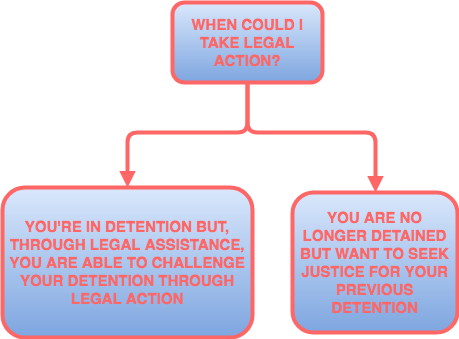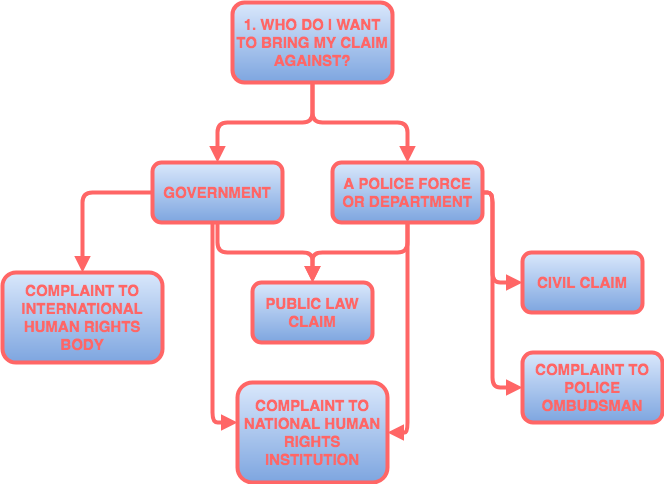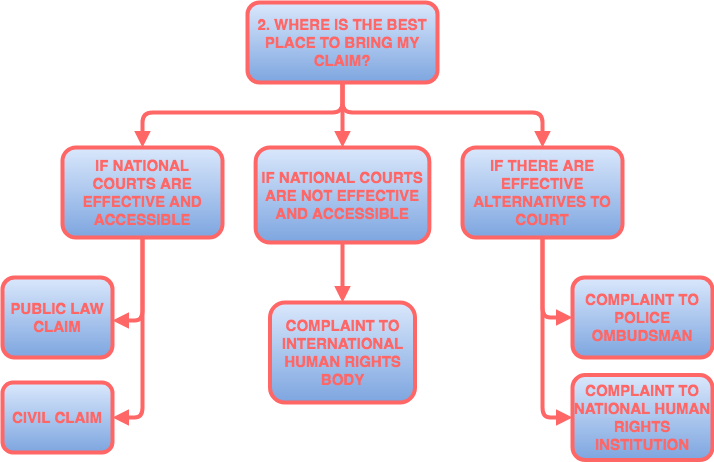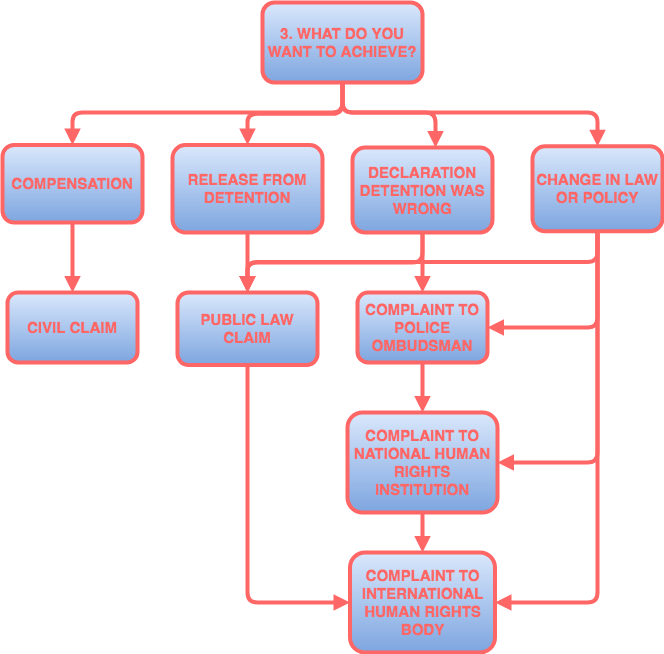How Can I Take Legal Action?
This section of the guide outlines different ways you can enforce your rights and hold the relevant authority responsible for arbitrary detention. These include:
(i) Complaints to an independent body such as an “Ombudsman”;
(ii) Bringing a civil claim against the police or relevant authority;
(iii) Bringing a public law challenge against the police or relevant authority;
(iv) Bringing a complaint to a national human rights institution; and
(v) Bringing a complaint to an international human rights body.
Have You Tried Challenging Your Detention within the Criminal Justice Process?
The Guide has already outlined in the previous sections ways that arbitrary detention can be challenged within the criminal justice process. This should usually be your first step.
The forms of legal action discussed in this section are outside of the criminal justice process (i.e. any case brought would be separate from the criminal investigation the police are bringing against you).
This legal action could generally be taken in the following scenarios:

How Can I Decide between Different Types of Legal Action?
See the flowcharts below for an overview of how to enforce your rights. Please note that the tools/mechanisms displayed in the flowcharts are the “most common” avenues for you to enforce your rights; there may be other avenues open to you.
At the outset, you should consider what individual or organisation you want to bring your claim against.

Next, you may want to consider where you should bring your claim. This will depend on the claim mechanisms available in your specific country.

Finally, you should bear in mind what result you want from bringing a claim. Generally, if you want financial compensation you will need to bring a civil claim and if you want to challenge the laws of your country because you think they are incorrect, you will need to bring a public law challenge.

Once you have decided what type of claim you want to make, against who and where, it is always a good idea to contact a lawyer for support. If you are being detained, you can still request to see a lawyer. They will be able to help you decide whether you have a case, the strengths of your case and al soon the best course of action to take with regards to any national mechanisms or appeals to secure your release or seek compensation.
What Are the Challenges when Taking Legal Action to Challenge Detention?
Taking legal action is never a simple or an easy process. It’s usually a last resort when other ways to prevent or remedy an injustice have failed or are not possible.
In general, the following are common difficulties when taking legal action:
- It can be expensive and time consuming. For information on how to deal with the cost of taking legal action, see How Can I Finance My Action?.
- There can be threats to your security. For information on potential ways to deal with these threats, see How Do I Deal with Security?.
- Legal claims can be complex and confusing. For that reason, it’s key to find support (see How Can I Get Support?).
There are often additional challenges when taking action against the police:
- The police have power and resources to defend themselves in court.
- The police may have important information that you need to support your case (e.g. arrest and detention records) but may not cooperate in giving you that information.
- In some countries, the police may retaliate or try to intimidate people who take cases against them.
- If you are being held in custody, this can make it more difficult to gather evidence and build your case. However, you can still request to see a lawyer and you have to right to do so.
Despite these challenges, legal action can still be successful and may be right for you. What’s important is that, after reading this Guide, you weigh up the risks and the benefits of taking legal action in order to make an informed decision.